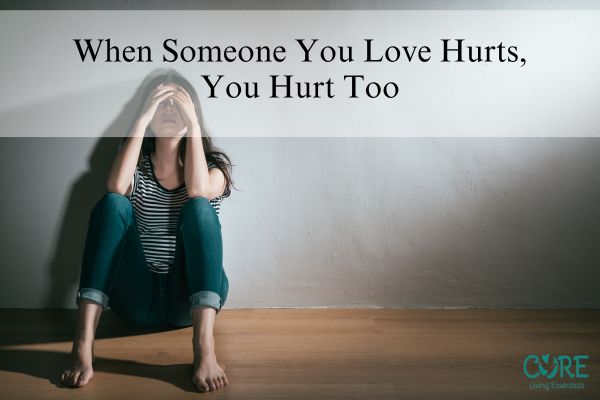Question:
My spouse and daughter have been struggling with the loss of their mother and grandmother. We all knew this time would come yet I still have no idea how to help them get through it all. Can you give us some help?
Answer:
We deeply want to help our loved ones experiencing a tremendous loss and we also know we can’t bring back the deceased family member. We are left with helping deal with the pain. Mostly we are afraid to say or do something wrong, so many times we choose don’t do or say anything. There really is no perfect way to respond or support someone who is in pain.
Keep in mind that because of loss or trauma, there can be a fundamental shift in their views of life or even their sense of identity. The result is a domino effect influencing everyone in their lives, which many times causes tremendous stress in all relationships manifest as irritability, mood changes, guilt, depression, avoidance, fear, and preferred isolation.

The following are some ideas to help the griever get through in a healthy place of peace:
- Prepare yourself. To prepare physically and emotionally, be more aware of your own anxiety and feelings of inadequacy. Learn to soothe yourself through meditation, breathing exercises, and self-talk. When you are personally ready, think about what needs to be learned from this loss and then you will be better equipped to help those who are hurting by making a safe haven for them. Your approach is what makes the difference: no negative talk, no expectation that they should just get over it and move on, expect time – grief and trauma take time so use that time with them. You need to be predictable, stable and available for them.
- Listen and listen and listen some more- especially at the beginning. As time goes by you can gently bring in some soothing strategies. Talk about the good memories and share ideas of all that you had learned from the deceased. Encourage those struggling with loss to start joining you in this conversation, but absolutely do not give unsolicited advice. When they are ready, they will ask for advice. If they are not ready, they will not listen to the advice and the feelings of loss will increase. You’re not there to solve their problems; your focus should be support and empathy, to be there and to listen.
- Find a New Normal. It is imperative to understand that we all have a different path we are meant to follow. When we feel our path is suddenly changed, we need to realize that maybe this bend was part of the path all along. We make choices daily that affect our view of that path – we can choose to find the good in all of life or we can choose to continually feel the pain everyday. In reality that pain never goes away completely, but it can remind us of all the good or of the blessings. Just don’t forget, we need to take the time to grieve.
What is normal?
We could say that it is completely normal that I am in so much pain because of my marriage, or because of the way I am treated at work or because I just lost a loved one.
The emotional pain is normal yet it is not okay with me. And this is what I am going to do about it. Maybe that would be get divorced, get a new job or it could be changing my mind about how life should be. I am going to make a change because this pain is not acceptable.
This is not how I want my life.
Drop the idea that life is all about tranquility, Make a plan on how to meet this struggle. We need to write some real plans on what is a bearable life. Focus on stress reduction, rain relief, and learn more about coping strategies and then how are we going to invite happiness. Struggle is part of this life and we can make it free of fear and filled with hope by creating a plan for change using tactics for dealing with this struggle.
When making a new norm consider the following:
- Not all of our struggles are external.
- We need to change our negative thoughts with positive thoughts. Our failures come from us believing our negative thoughts instead of seeing ourselves in a more positive light.
- The most important relationship you will ever have is the relationship you have with yourself. Are you your best friend or worst enemy?
- Plan for private victories. What are your bad habits you need to conquer then you will be ready to take them public. You act out your private life even if you think you don’t.
- Recognize who you really are. Not what you do but who you really are.
We cannot determine their new normal, but we can help lead the way by making a safer path. Maybe we can even building our own new norm. We can offer a supportive ear, a hug, help them find support groups, and help build their self-confidence. Learn to be happy because sadness can become a habit.
Be aware that this loss can be bigger than both of you and that it can easily bring a wedge between you and your loved ones. Don’t hesitate to reach out for help from professionals when you are feeling hopeless. That is all part of the new norm. Remember that there can be and is another life of amazing experiences yet to come.
More information on mourning and rebuilding a new norm. a free download.
One step at a time.
Take the free assessment to find what is keeping you stuck.
